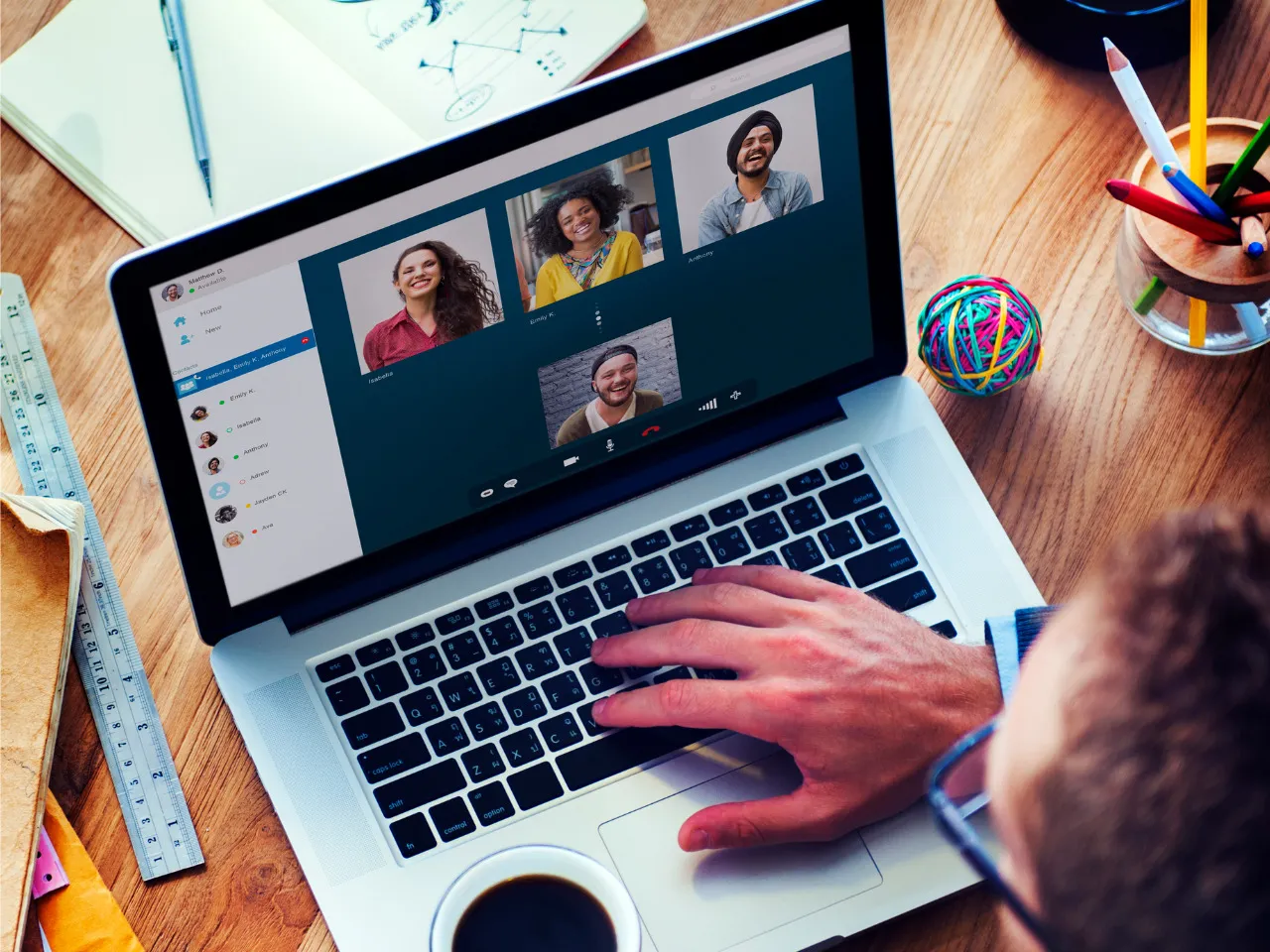Video conferencing is now the go-to tool for business communication. From small teams to enterprise-level companies, most meetings now happen online. But here’s the real concern—how secure are your virtual conversations? If you’re not using encrypted video calls, your discussions may not be as private as you think.
Cybercrime is growing every day, and hackers are getting smarter. With so much sensitive information shared during virtual meetings, security should be your top priority. In this blog, you’ll learn what encrypted video calls are, why they matter, how they work, and why your business needs them urgently. Let’s get straight to the point.
What Are Encrypted Video Calls?
Encrypted video calls are conversations that are digitally scrambled during transmission. This process ensures only the people involved in the call can understand or access the content. Encryption turns voice, video, and data into unreadable code that can only be decoded with a specific key.
This technology stops unwanted third parties from listening, recording, or stealing your communication. Even if a hacker intercepts the data, all they see is random code they can’t use.
Encrypted video calls use complex algorithms, but the idea is simple: no one else should be able to hear what you say or see what you share. The moment your call starts, encryption kicks in. It protects your audio, video, screen sharing, and messages throughout the session.
Why Encrypted Video Calls Matter More Than Ever
With businesses moving fast and competition tightening, every discussion counts. The problem is, many people don’t realize how vulnerable video calls are without proper security.
If your calls aren’t encrypted, everything you say and share is exposed. It’s like talking loudly in a public space where anyone can listen in.
Let’s go over why this matters for your business:
1. Protect Confidential Discussions
Businesses regularly share sensitive information during meetings—client contracts, budgets, strategies, legal advice, or product development. If someone unauthorized hears this, your competitive edge could disappear.
Encryption stops this from happening. It keeps your ideas and data private. Only participants in the meeting can see or hear the information. This level of privacy builds safety and confidence among teams and clients.
2. Secure Communication With Clients and Partners
When you hold virtual meetings with clients or vendors, you’re often exchanging confidential details. Contracts, pricing, service terms, and reports should never be open to outsiders.
Using encrypted video calls shows your clients that you take security seriously. It reassures them that their data is in safe hands and builds long-term trust. It also strengthens your business reputation and positions you as a responsible, modern company.
3. Meet Legal and Industry Requirements
Many industries require secure communications by law. If your business operates in healthcare, finance, education, or law, you likely deal with regulated data.
Failing to protect this information could lead to:
- Legal action
- Government fines
- Data breach notifications
- Loss of business licenses
- Permanent damage to your brand
Encryption helps you stay compliant with strict privacy laws like:
- HIPAA (Health Insurance Portability and Accountability Act)
- GDPR (General Data Protection Regulation)
- CCPA (California Consumer Privacy Act)
- PCI-DSS (Payment Card Industry Data Security Standard)
By using encrypted video calls, you meet these standards and avoid the risk of penalties or customer lawsuits.
4. Reduce the Risk of Data Breaches
Hackers don’t only target big companies. Small businesses are often easier to attack because they use weaker security tools. One unprotected video call can become a gateway into your entire system.
Encrypted video calls reduce this risk. They seal your communication from end to end, leaving nothing open for attackers to exploit. Even if someone tries to intercept the signal, encryption blocks them from reading the content.
How Do Encrypted Video Calls Work?
Encrypted video calls work by encoding data before it leaves your device and decoding it only when it reaches the intended participant. This process involves secure keys that are unique to each user or meeting.
Here’s a simplified overview:
- You join a video call using an encrypted platform.
- As you speak or share a video, your device encrypts the content in real-time.
- The encrypted data is sent over the internet as unreadable code.
- The other person’s device receives the data and uses a private key to decode it.
- At no point in between is the information readable by anyone else, not even the platform provider.
This method is called end-to-end encryption (E2EE). It’s the most secure form of encryption available. With E2EE, no server in the middle has access to your conversation—not the app developer, not the host, and not your network provider.
What Makes a Video Call Platform Truly Secure?
Not all video call platforms offer real encryption. Some use basic encryption that protects data only while it’s traveling from your device to the server. That’s called transport encryption—and while it’s better than nothing, it’s not enough.
To ensure your calls are truly secure, look for these features:
- End-to-end encryption (not just transport)
- Meeting passwords and one-time links
- Two-factor authentication (2FA)
- Encrypted cloud storage (if recordings are saved)
- Access control for participants
- No third-party data access
- Secure chat and file sharing
Also, make sure you’re using the latest version of the software. Outdated versions often have security flaws that hackers can exploit.
The High Cost of Unsecured Video Calls
Some businesses still think security is optional. They use free or low-cost video call tools that lack real protection. What they don’t realize is how expensive one breach can be.
Here are just a few of the consequences of using insecure communication tools:
- Leaked financial information
- Stolen intellectual property
- Public relations disasters
- Regulatory penalties
- Lost deals and contracts
- Internal team distrust
These problems don’t just cost money—they break relationships. And in today’s fast-moving business world, reputation is everything.
Who Needs Encrypted Video Calls?
Encrypted video calls aren’t just for large corporations. Every business—no matter the size—needs secure meetings. If you ever discuss private or business-sensitive topics, you need encryption.
Businesses that benefit the most include:
- Law firms: Client confidentiality is a legal requirement.
- Medical practices: Patient records must remain private under HIPAA.
- Startups: Early-stage companies need to protect innovation and IP.
- Financial services: Client portfolios and personal data are targets for theft.
- Educational institutions: Student data, test materials, and research require security.
- Creative agencies: Concepts, campaigns, and branding details must stay protected.
Even internal team calls discussing new plans, salaries, or performance data can be risky without protection. It’s better to secure every conversation than to take chances.
How to Make the Switch to Encrypted Video Calls
Switching to encrypted video calls is not difficult. You just need to choose a platform that supports full security and follow a few best practices.
Here’s a step-by-step guide:
- Choose the right platform. Look for E2EE, user authentication, and secure file sharing.
- Update all devices. Use the latest operating systems and app versions.
- Create secure access rules. Use passwords, waiting rooms, and access approval for meetings.
- Train your team. Teach your staff the importance of video call security.
- Use strong internet security. Combine encrypted calls with antivirus, firewalls, and VPNs.
- Review privacy policies. Understand how your video platform handles data and user logs.
The process is easy, and the payoff is long-lasting.
Why Acting Now Is Critical
Every day you delay using encrypted video calls is another day you leave your business exposed. Data breaches are no longer rare—they’re expected. Even one slip can affect years of hard work.
Securing your communication is no longer optional. It’s the foundation of trust, professionalism, and growth in today’s connected world. If you’re serious about protecting your clients, team, and future, encryption should be part of your strategy now, not later.
Conclusion
Encrypted video calls protect your meetings, your data, and your reputation. They offer the highest level of privacy available for video conferencing. Whether you’re speaking with clients, team members, or partners, security should never be left to chance. Make the smart move—secure your communication today with encrypted video calls.
Ready to protect every conversation? Let Video Conferencing NY set up encrypted video calls that keep your business communication safe, clean, and fully secure—get started today!


